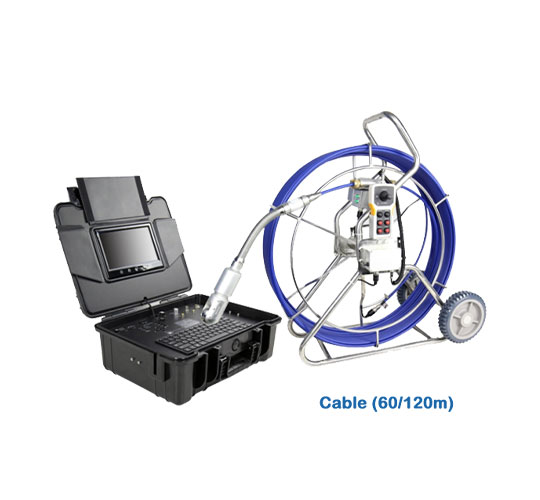Selecting an Videoscopio industrial: Consideraciones clave y opciones de materiales
Introducción
In today’s industrial landscape, El uso de tecnología avanzada es crucial para una inspección eficiente., mantenimiento, y control de calidad. Los videoscopios industriales se han convertido en herramientas indispensables para profesionales de diversos campos., incluyendo la fabricación, aeroespacial, automotor, y mantenimiento de infraestructura. Choosing the right industrial videoscope and materials is essential for ensuring accurate inspections and long-term reliability. This article provides an overview of key considerations when selecting an industrial videoscope and offers insights into material choices for these essential devices.
Key Considerations for Choosing an Industrial Videoscope
- Inspection Requirements
Before selecting an industrial videoscope, it’s vital to define your specific inspection requirements. Consider factors such as the type of inspection (visual or remote), the size and complexity of the inspection area, and the desired image quality. This will help determine the appropriate videoscope configuration, including diameter, longitud, and camera specifications.
- Image Quality
The quality of the images produced by an industrial videoscope is crucial for accurate inspections. High-resolution cameras, excellent lighting, and advanced image processing capabilities are essential features to consider. Make sure the videoscope provides clear and sharp images even in challenging environments, such as low-light conditions or tight spaces.
- Flexibilidad y maniobrabilidad
The flexibility and maneuverability of the videoscope are critical factors, especially when inspecting complex or hard-to-reach areas. Opt for a videoscope with articulation capabilities, allowing you to navigate through bends and corners with ease. The degree of articulation and the number of articulation points should align with your specific inspection needs.
- Durability and Reliability
Industrial environments can be harsh, with exposure to dust, moisture, quimicos, and mechanical stress. Ensure that the videoscope you choose is built to withstand these conditions. Look for rugged construction, durable materials, and effective sealing to prevent damage and maintain reliable performance over time.
- Portabilidad y Ergonomía
Considere la portabilidad y ergonomía del videoscopio., especially if it will be used in the field. Lightweight and compact designs with ergonomic handles can enhance usability and reduce operator fatigue during extended inspections.
- Longitud y diámetro de la sonda
The size of the inspection area and the access points available will dictate the probe’s length and diameter. Choosing the right dimensions is crucial to ensure the videoscope can reach the desired inspection points without causing damage or obstruction.
Material Choices for Industrial Videoscopes
- Stainless Steel
Stainless steel is a popular choice for videoscope probes due to its corrosion resistance and durability. It is suitable for applications in harsh and corrosive environments, making it a reliable choice for industries like petrochemical, offshore, and marine.
- Tungsten Braided
Tungsten-braided probes offer superior resistance to abrasion and bending. These probes are well-suited for inspections in rugged environments where the probe may come into contact with abrasive surfaces or sharp objects.
- Polyethylene
Polyethylene is a lightweight and flexible material, making it ideal for videoscope probes used in delicate or sensitive applications. It provides good resistance to chemicals and is often used in pharmaceutical and food processing industries.
- Hybrid Probes
Some videoscopes feature hybrid probes that combine different materials to provide a balance of flexibility and durability. These probes can be customized to meet specific application requirements.
Conclusión
Selecting the right industrial videoscope and materials is a critical decision that directly impacts the effectiveness and longevity of inspection processes. By carefully considering your inspection requirements and choosing the appropriate materials, you can ensure that your videoscope performs reliably in the most challenging industrial environments. Make an informed choice to streamline your inspection processes and maintain the highest standards of quality and safety.


